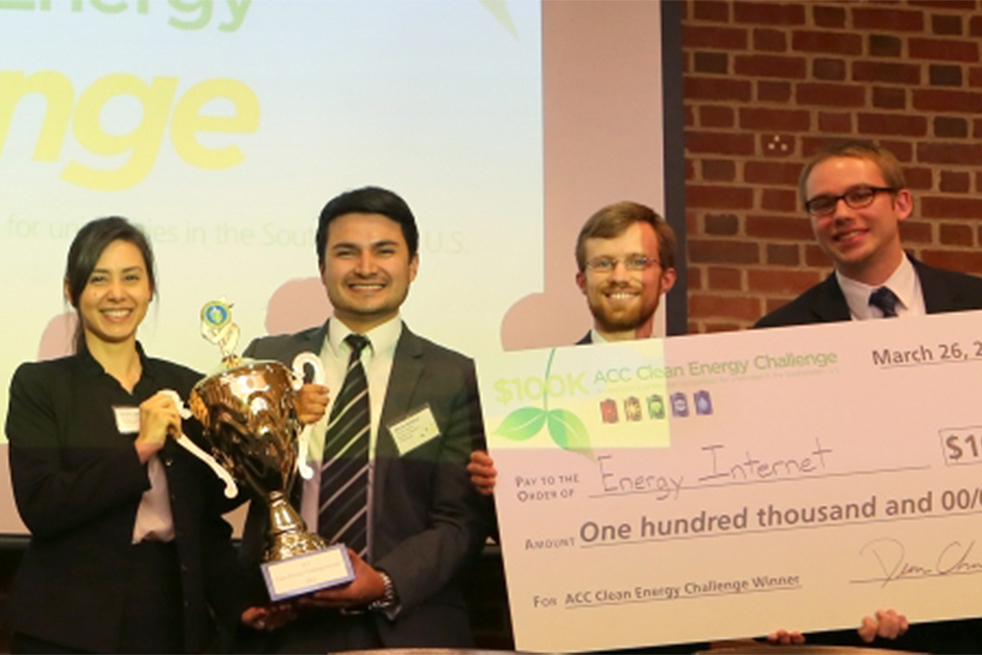A team of Georgia Tech graduate students represented the Southeast region in the National Clean Energy Business Plan competition from June 11 to 12 in Washington, DC after winning the ACC Clean Energy Challenge on March 26. Their idea, called “Energy Internet,” will try to transform the existing power grid to adjust to the increasing amounts of civilian-produced renewable energy.
Due to their success in the regional competition, they won a $100,000 cash prize and participate in this summer’s NSF Innovation Corps program, where they will further develop their concept for commercialization.
This idea was a cross-disciplinary effort: The student team consisted of graduate students Jennifer Howard, Marcelo Sandoval, and Mitch Costley, from the ECE department and Eric Crane from the BA department. In addition, a team of four faculty members assisted the students: led by Dr. Santiago Grijalva from the ECE department, they include ECE professors Magnus Egerstedt and Marilyn Wolf and ISYE professor Shabbir Ahmad.
“Energy Internet is developing a software platform as a service to solve several key problems that electric utilities face today,” said Costely. Existing infrastructure is unable to handle renewable energy devices such as electric vehicle chargers and solar panels. These individuals who are able to produce and store this energy are called “prosumers.“ Power companies are currently concerned about losing revenue due to the increase of resident-generated power.
“It may actually help them transition to a different paradigm not built upon electricity as a commodity which is just on megawatts but a paradigm where the industry works as a service,” said Dr. Grijalva. This group envisions a future where this energy can be exchanged between consumers and utility companies. By doing away with centralized energy distribution increased grid reliability and sustainability can be reached.
This project is funded by a $2,000,000 an ARPA-E research grant from the Department of Energy. “It is a special agency…that funds high-risk, high-reward projects like ours,” said Howard.
What distinguishes the Energy Internet project from other ARPA-E-funded projects is that all involved members are associated with the Institute. “Because the availability of resources and experts within Georgia Tech, we were able to have a Georgia Tech only project and that facilitated coordination allows us tremendous speed in moving forward. [We have] access to world-class researchers and students that can work on these challenging problems,” said Grijalva.
“So that grant ends in December and after that we’ll be starting a company to continue that work,” said Howard. After this year, they will form a start-up called ProsumerGrid and work closely with ATDC in Tech Square to develop their business.
“We look to make small changes in the ways systems [are] controlled at first,” said Costley. “But once we keep going in that direction 10 to 15 years from now [the industry will] look different.”
